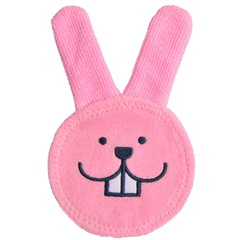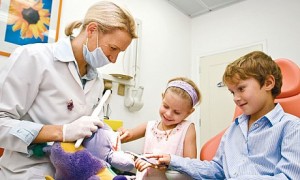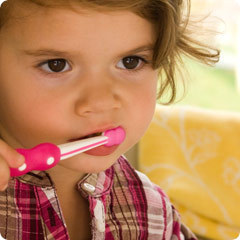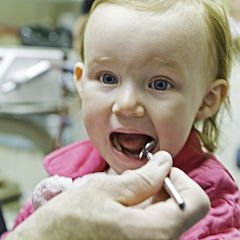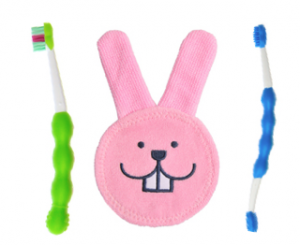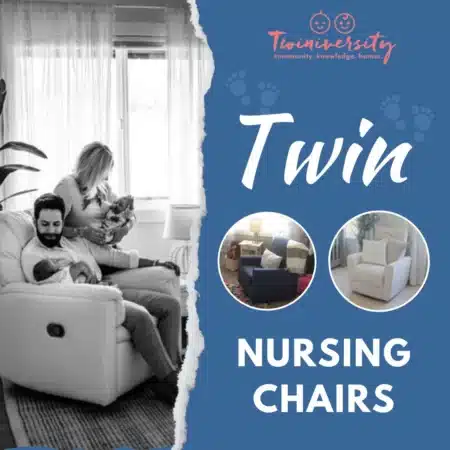Last updated on November 26th, 2023 at 09:23 pm
Today, during our MAM TwinTastic Online Celebration we have a special guest contributor, Dr. Mira Albert DDS of Brush Pediatric Dentistry in Hinsdale IL.
Like Dr. Albert, MAM makes it easier for us to care for our children’s teeth. Many think that until your children lose their baby teeth, there isn’t much concern for dental health, but today we hope to enlighten you a bit and give you the opportunity to win a MAM Oral Care Kit that will take your child from infancy through their first year! (see below for details)
We recently asked Dr. Albert to help give our parents a proper education on our children’s dental care, here is what she wrote:
As a pediatric dentist, you wouldn’t believe how often I hear the following from parents: “They’re babyteeth—they’re just going to fall out anyway.” True, they will eventually fall out, but if you don’t take proper care of those little chompers, you will likely have a host of problems.
Baby teeth serve many functions for kids: they need them to chew properly, enunciate words, and they create a pathway for adult teeth to come into the mouth. Some baby teeth are in the mouth until age 12 or even 13 so there is plenty of time for pain, infection, or swelling to occur if a cavity isn’t treated. If their baby teeth are prematurely lost, children can have some pretty major orthodontic problems. These are just a few of several reasons why baby teeth are important.
Chew on This
According to the Centers for Disease Control and Prevention, more than 40% of children have dental cavities by the time they reach kindergarten, and dental problems can begin in children as young as 15 months and sometimes earlier. Based on recent studies, tooth decay in young children is on the rise. Could it be all that non-fluoride bottled water we are drinking? Dental decay is more prevalent than asthma, and more school days are lost due to dental-related problems than any other illness.
As our dear friend Oprah might say, I have had my share of “aha moments” during my experience treating children. I have been blessed that my career has taken me across all socioeconomic classes. These experiences gave me a huge variety of exposure to all walks of life and to children with many different challenges. My residency was spent working in the heart of Chicago and then just after I completed my training I worked on the South Side, treating kids in tough circumstances. As a resident I wanted to get a little real world experience practicing and make a few extra bucks to enjoy my 20’s living in a great city. So juxtaposed to the above positions, I spent many a Saturday morning trekking past the American Girl doll store, mentally noting the crazy line forming at 7:30 am, to moonlight out of a practice located in the Neiman Marcus building on Michigan Ave. In this particular practice so many of the kids were the children of the “who’s who” in Chicago.
Finally, for the last 5 years my days have been spent, by and large, with kiddos from middle-class families. The common thread between all of these groups is that each parent wants the very best for her child regardless of income, status, or neighborhood. No parent wants her child to be in pain or to be mistreated. And this is why we, as pediatric dentists, exist. I have also learned that with proper early education and regular care, dental disease is a preventable disease. But without such valuable knowledge dental disease escapes no child. Sure there are kids that are just prone to cavities (yup! that was me as a kid) and other issues, but usually as long as we get in there in a timely fashion, we can manage dental problems and minimize negative outcomes.
I fully endorse the American Dental Association’s (ADA), American Academy of Pediatric Dentistry’s(AAPD) and the American Academy of Pediatrics’ (AAP) recommendation that parents take their baby to the dentist around his or her first birthday. Establishing a dental home is an important step in a baby’s life. At this appointment, the pediatric dentist can check for tooth decay or any other issues and teach you how to properly care for your baby’s new teeth. Your pediatric dentist will also advise you on how to handle any potentially negative habits, such as thumb-sucking, nursing on demand or persistent night feedings.
Some Easy At-Home Tips
- The fluoride scoop: use a fluoride free water to mix formula (formula already contains fluoride but recent data is showing that mixing with fluoride containing tap water might be over exposure).
- That said, when your child is a little older give him or her tap water whenever possible. The fluoride there is so important to developing teeth!! Bonus: you save some money on all that bottled water.
- Begin wiping your infant’s gums twice a day with a soft cloth or a finger brush very early on.
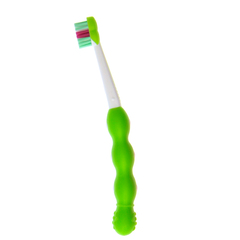 Once that first tooth comes in, we recommend using a specially designed infant toothbrush at least once a day—preferably just before bedtime—to remove plaque bacteria and prevent decay. Use either water or a safe-to-swallow toothpaste. If your child is at high-risk for cavities, I may recommend using a smear of fluoride toothpaste.
Once that first tooth comes in, we recommend using a specially designed infant toothbrush at least once a day—preferably just before bedtime—to remove plaque bacteria and prevent decay. Use either water or a safe-to-swallow toothpaste. If your child is at high-risk for cavities, I may recommend using a smear of fluoride toothpaste.- Try not to share utensils or drinks with your children and try to prevent them from doing this with others. The bacteria that causes cavities is contagious and usually transferred from person to person via the above means. For this same reason you should also take good care of your own dental health and have any untreated cavities filled.
- Thumb and pacifier-sucking habits tend to only become a problem if the child carries on with the habit for a very long period of time. If your child is still sucking his or her thumb or fingers past the age of three, we may recommend a special mouth appliance but only if your child is ready and wants to break the habit but just needs a reminder.
- The American Academy of Pediatric Dentistry recommends a check-up every six months to prevent cavities and other dental problems.
- See a pediatric dentist by your child’s first birthday or earlier if you notice a problem. We are trained and here to help.
Thank you Dr. Albert for the great tips that will ensure that we take proper care of our children’s teeth. Thanks to our friends at MAM, you can win an Oral Care Kit to ensure that your twinnies have the healthiest teeth on the block.
Our lucky winner will receive (4) Oral Care Rabbits, (4) Massaging Brushes, (4) Training Brushes and (4) First Brushes!
[gravityform id=”3″ name=”Mam TwinTastic Giveaway”]
*Winners for our TwinTastic MAM celebration will be notified on April 30th via email. We will announce them on Twiniversity.com that same day. Only one entry per email address a day will be entered to win. Winners will be chosen via random.org.
This Giveaway is Closed

